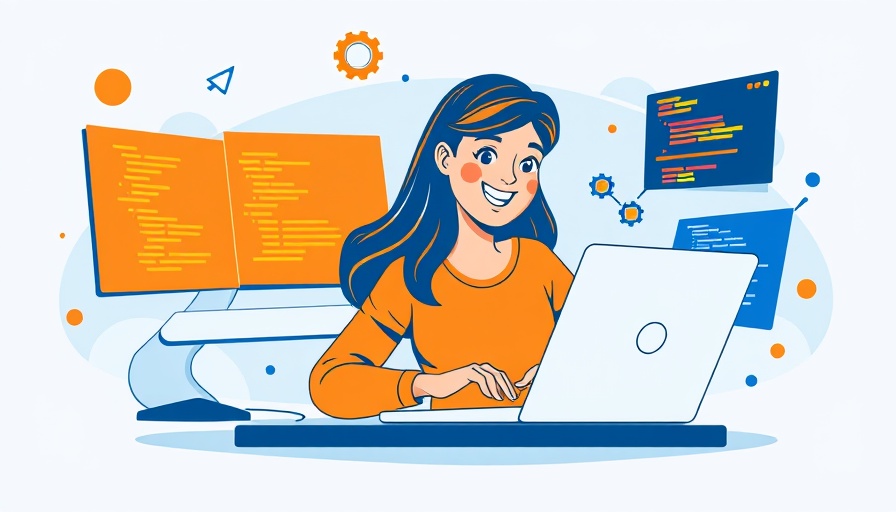
Why Coding Skills Remain Essential for Students
As artificial intelligence increasingly dominates the tech landscape, some voices argue against the necessity of teaching coding in schools. However, Szymon Sidor, an OpenAI researcher, firmly argues that these perspectives represent a dangerous level of misinformation. High school students, he claims, should still absolutely learn to code, emphasizing that the benefits extend far beyond merely writing lines of code.
Sidor explains that coding is not just about learning a programming language; it's about developing vital problem-solving and critical-thinking skills. In a world where AI tools like ChatGPT can generate code with simple English prompts, the ability to deconstruct complex problems into manageable parts becomes even more invaluable. Sidor believes that even if coding as a discipline becomes outdated, the underlying skills acquired through programming endure.
Coding as a Modern Compass for Problem-Solving
Consider coding as a modern compass guiding students through the intricate landscape of problem-solving. Much like learning to navigate a complex city, understanding coding allows students to approach challenges with a structured mindset. This critical thinking is essential regardless of one’s career path—be it in tech or any other field. According to Sidor, “One skill that is at premium, and will continue being at premium, is to have a really structured intellect that can break complicated problems into pieces.”
How Learning to Code Prepares Students for AI
OpenAI's podcast host, Andrew Mayne, reflects on his late introduction to coding, noting how this skill helped him communicate more effectively with AI. Mayne's assertion that every pilot should understand aerodynamics echoes in the realm of technology—an understanding of coding principles allows users to collaborate effectively with advanced AI tools rather than blindly relying on them.
Contrasting Views: Is Coding Becoming Obsolete?
However, not everyone agrees with Sidor and Mayne. Nvidia CEO Jensen Huang argues that AI democratizes coding, implying that the next generation might not need formal programming education. Instead, users can simply request AI to handle coding tasks through natural language. This perspective raises critical questions about the future of coding: if anyone can code using AI, what are the implications for job roles and necessary skills?
The Future of Coding in Education
Reports from leading tech companies, such as Google and Microsoft, indicate a growing reliance on AI for coding tasks, highlighting the changing nature of software development. With AI writing significant portions of new code, the landscape is undeniably shifting. But does this mean we should forgo teaching coding altogether? On the contrary, it may underscore the importance of coding as a foundational skill that enables students to harness AI tools effectively. In a rapidly evolving job market, a background in coding offers students essential skills for adaptability and critical thinking.
Practical Takeaways: Staying Ahead in a Tech-Driven Future
For business leaders, engaging high schoolers in coding education centers around empowering future generations. They will be the ones driving innovative ideas, whether through code or their ability to articulate complex problems. Encouraging coding education could cultivate a more diverse pool of talent ready to collaborate with AI—an investment for the future.
In summary, the debate over whether high school students should learn to code encapsulates a larger conversation about education’s role in a technology-driven world. As we consider the rapidly changing landscape of AI, it becomes clear that the skills developed through coding education are not solely about programming but are essential to fostering critical, analytical thinkers prepared to navigate complex challenges. Therefore, rather than dismissing coding as obsolete, advocating for its inclusion in modern education is more imperative than ever.
 Add Row
Add Row  Add
Add 



Write A Comment